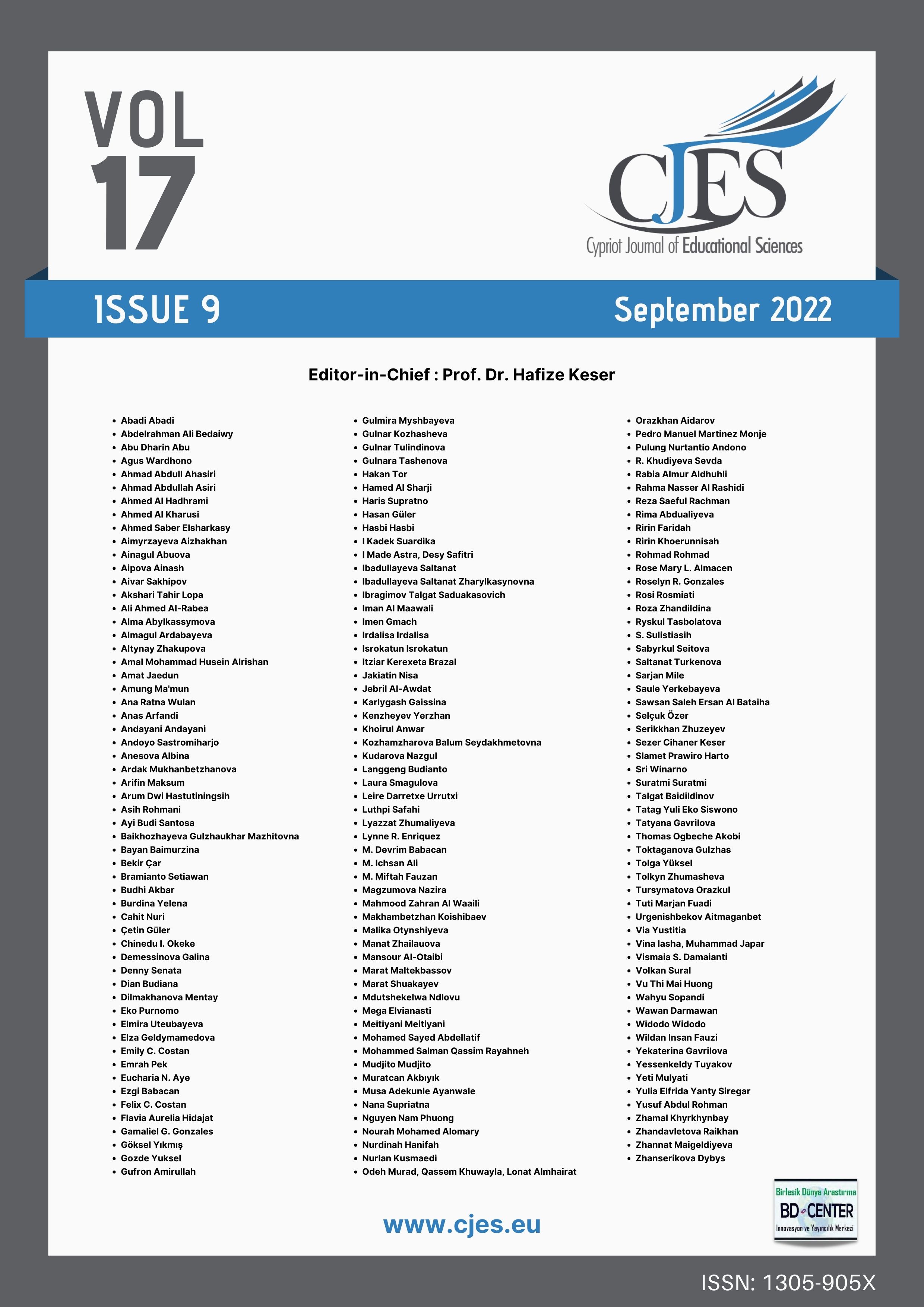Effectiveness of virtual flipped classroom on science achievement and higher thinking skills development
Main Article Content
Abstract
The study aimed to gauge the effectiveness of virtual flipped classrooms on the science achievement of seventh graders and the development of higher-order thinking skills. The researcher followed the quasi-experimental research design. The participants were randomly selected and consisted of 60 students divided into a control group (n = 31) and an experimental group (n = 29). The former was taught traditionally and the latter was taught by the virtual flipped classroom method. The researcher applied pre-post diagnostic tests to the two groups, in addition to descriptive statistics and a-test for independent samples. The results revealed that there are significant differences between the means of the two groups in favour of the experimental. Furthermore, the study confirmed the effectiveness of the virtual flipped class in students' achievement and development of higher-order thinking skills. The study recommends activating virtual flipped classrooms in different school subjects and levels.
Keywords: Virtual flipped classroom, students' achievement, higher-order thinking skills.
Downloads
Article Details

This work is licensed under a Creative Commons Attribution 4.0 International License.
Cypriot Journal of Educational Sciences is an Open Access Journal. The copyright holder is the author/s. Licensee Birlesik Dunya Yenilik Arastirma ve Yayincilik Merkezi, North Nicosia, Cyprus. All articles can be downloaded free of charge. Articles published in the Journal are Open-Access articles distributed under a CC-BY license [Attribution 4.0 International (CC BY 4.0)].
Birlesik Dunya Yenilik Arastirma ve Yayincilik Merkezi (BD-Center)is a gold open-access publisher. At the point of publication, all articles from our portfolio of journals are immediately and permanently accessible online free of charge. BD-Center articles are published under the CC-BY license [Attribution 4.0 International (CC BY 4.0)], which permits unrestricted use, distribution, and reproduction in any medium, provided the original authors and the source are credited.

